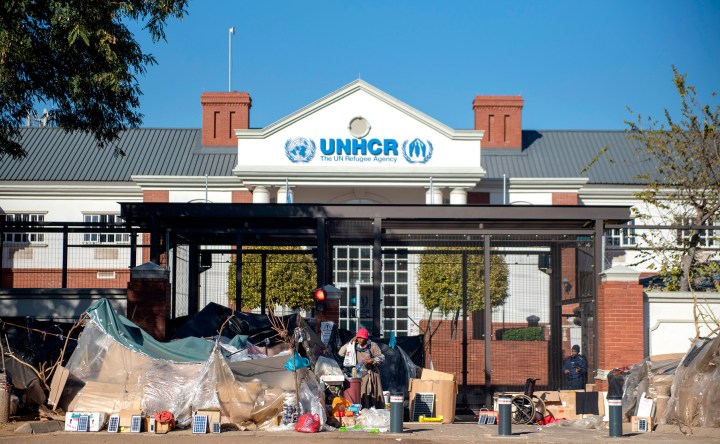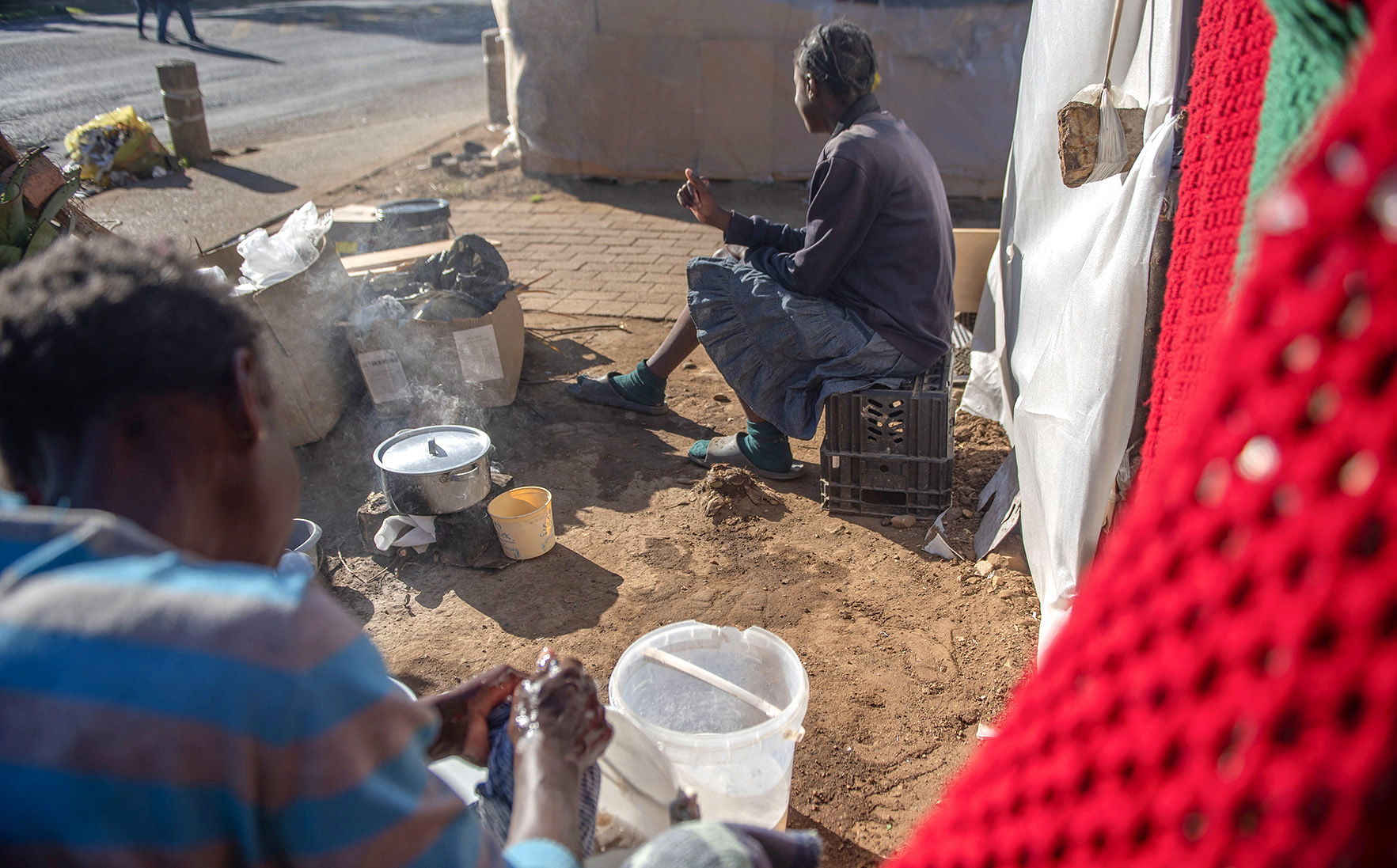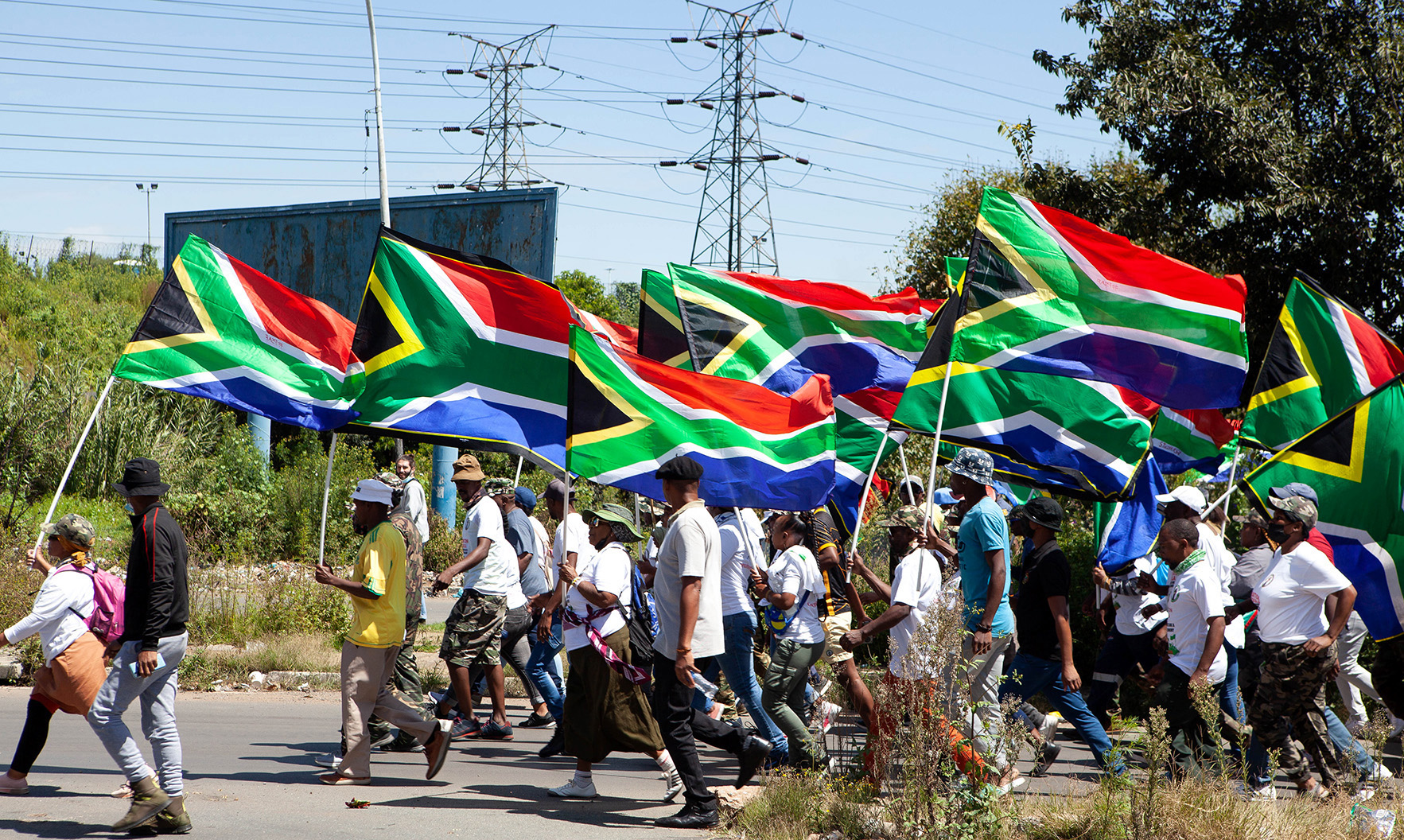CAUSE FOR CONCERN
United Nations calls on South Africa to act urgently against rising xenophobia

United Nations special rapporteurs have written to International Relations Minister Naledi Pandor, giving the South African government 30 days to respond to their joint communication on allegations of xenophobia and attacks on foreigners in the country.
The rise in xenophobia over the past few months has shown itself in increased attacks on foreigners, violent vigilantism and the growing influence of organised anti-foreigner structures such as Operation Dudula and the #PutSouthAfricaFirst movement.
Activists and civil society groups have repeatedly called on the government to take a more active stance against xenophobic mobilisation, denouncing an apparent lack of political will to address the situation. Now, United Nations (UN) experts have weighed in, condemning reports of escalating violence against foreigners throughout the country.
“Without urgent action from the government of South Africa to curb the scapegoating of migrants and refugees, and the widespread violence and intimidation against these groups, we are deeply concerned that the country is on the precipice of explosive violence,” they warned.
UN intervention
The experts behind the UN’s statement, released on 15 July, are Professor E Tendayi Achiume, special rapporteur on contemporary forms of racism, racial discrimination, xenophobia and related intolerance; Dr Morris Tidball-Binz, special rapporteur on extrajudicial, summary or arbitrary executions; and Professor Felipe González Morales, special rapporteur on the human rights of migrants.

Refugees and asylum seekers camp outside the UN Refugee Agency’s offices in Pretoria on 2 June 2022, saying they cannot go back to their communities in South Africa because of alleged xenophobic attacks. (Photo: Gallo images / Alet Pretorius)
Special rapporteurs form part of the UN Human Rights Council’s Special Procedures, the largest body of independent experts in the UN’s human rights system.
The special rapporteurs have sent an official joint communique to the South African government, addressing allegations around the rise in xenophobia and clarifying the state’s obligations under international law.
Maverick Citizen requested a copy of the communique, but was told by the UN that it will remain confidential for 60 days from the time it was sent, after which it will be made public.
In the statement, the special rapporteurs noted that xenophobia – particularly against African and South East Asian migrants and refugees – has been a feature of South African politics for many years. It is often racialised, targeting low-income black foreigners and South African citizens accused of being “too black” to be local.

A child charges a cellphone with solar chargers in front of makeshift tents outside the UN Refugee Agency’s offices in Pretoria on 2 June 2022. (Photo: Gallo images / Alet Pretorius)
Two specific incidents were referenced. The first was the April 2022 killing of 43-year-old Zimbabwean Elvis Nyathi in Diepsloot, Gauteng. He was attacked, beaten and set alight by a mob of people who knocked on doors and demanded to see residents’ passports.
Read in Daily Maverick: “UN condemns murder of Elvis Nyathi and all xenophobic acts in South Africa”
Read in Daily Maverick: “Police on high alert after murders and mob killing of a Zimbabwean national in Diepsloot”
The second was the June 2022 burning of the Yeoville Market in Johannesburg, allegedly by people targeting migrant shopkeepers.
Read in Daily Maverick: “Heartbreaking scenes as Yeoville Market catches fire after several threats to burn it down”
“The cost in human dignity and lives [in South Africa], particularly in light of the past 30 years of xenophobic violence, remains widespread and deeply troubling,” the special rapporteurs said.
Clayson Monyela, spokesperson for the Department of International Relations and Cooperation (Dirco), confirmed that the special rapporteurs wrote to Minister Naledi Pandor two weeks ago, requesting that the government comment on its joint communication containing allegations of racism, xenophobia and attacks on foreigners.
The understanding of the department is that the South African government has 30 days to respond to the communique, after which time the special rapporteurs will publish both their views and the government’s response, around 31 August. Should the government fail to respond by the set deadline, they will publish their communique as is.
Monyela questioned both the timing of the special rapporteur’s joint communication and the choice of the UN to publish a news release on the issue before the government’s response had been issued.
“Their joint communication and the news release are sent out just three months before the decision is made on South Africa’s campaign for the [UN] Human Rights Council seat (2023-2025),” said Monyela in a written response to Maverick Citizen’s enquiry.

People join a rally organised by Kopanang Africa against Xenophobia calling for an end to ‘xenophobic sentiments and groups’ in Johannesburg on 26 March 2022. (Photo: EPA-EFE / Kim Ludbrook)
“The three special rapporteurs are aware, are they not, that the anti-racism agenda is one of our priorities in the council. They also know that there are some countries that are opposed to that agenda. Questions may be asked as to whether this is not part of an orchestrated attempt to ‘derail’ our [Human Rights Council] campaign.”
The government has been clear in messaging and action whenever criminal elements have engaged in attacks on South Africans and foreigners, said Monyela.
“These acts have never been and will never be condoned by the South African government. Perpetrators have been arrested and the law is taking its course.”
Institutional culpability
The special rapporteurs claimed that xenophobic mobilisation has become a central campaign strategy for some political parties in South Africa.
“Anti-migrant discourse from senior government officials has fanned the flames of violence, and government actors have failed to prevent further violence or hold perpetrators accountable,” they stated.
Discrimination against foreigners has been institutionalised in both government policy and South African society, they noted, leading to violations of the right to life, physical integrity and an adequate standard of living. There have also been reports of widespread corruption in the South African asylum and migration systems, compounding these problems.

Protesters take to the streets for Kopanang Africa against Xenophobia’s rally in Johannesburg on 26 March 2022. (Photo: EPA-EFE / Kim Ludbrook)
That the UN, with its political and diplomatic weight, is engaging with the government on the problem of xenophobia is an important development, according to Dale McKinley, a spokesperson for Kopanang Africa Against Xenophobia (Kaax).
“We’ve seen with special rapporteurs and other things, where they have come out very strongly… the government has generally tended to sit up and take notice. The more pressure, the better – the more that [the UN] come out and point this out,” he said.
“I think it will, hopefully, have an effect on the government, to sort of pull back and realise that this road they’re going down, or at least some of them are going down, is only going to end in disaster.”
Xenophobia is becoming more politically mainstream, with members of parties – including the Patriotic Alliance, ActionSA and the ANC – embracing it for opportunistic reasons, according to McKinley.
When politicians lie and blame foreigners for their failure to address poverty and inequality, it exacerbates tensions that have already been worsened by the impact of the Covid-19 pandemic and long-standing socioeconomic inequality, said Sharon Ekambaram, head of the Refugee and Migrant Rights Programme at Lawyers for Human Rights.
“The [xenophobia] problem exists because of the way in which it’s been fuelled by politicians making reckless statements… and the minister of home affairs in particular has to take responsibility for trying to divert attention away from, firstly, the serious issues of concern with the management of the asylum system in our country, and its inability to ensure that people get documented in a dignified way,” she continued.
Maverick Citizen reached out to the Department of Home Affairs regarding the allegations around xenophobia, but had not received a response by the time of publishing.
‘Preposterous’
The claims made in the special rapporteurs’ joint communication – including that xenophobia is institutionalised and forms part of official government policy – are “sweeping, unfounded and preposterous”, according to Monyela.
“They go further to say that their ‘evidence’ is based on ‘sources’ such as reports of NGOs and social media platforms. But they also say that these ‘reports’ and ‘sources’ still need to be verified. How then do they justify and explain publishing such untested allegations?” he said.
“We have a standing invitation to all special rapporteurs to visit South Africa. The fact that some of them have not visited recently does not therefore justify their total reliance on information that is unverified, untested and clearly false, and yet publish it as if it is beyond reproach.”

Operation Dudula’s Jeppe launch took place at Gilfillan Park on 19 March 2022. (Photo: Gallo Images / Papi Morake)
Dirco would raise these issues with the special rapporteurs and insist that “South Africa’s concerns” were incorporated in a subsequent news release.
“To let this matter go unaddressed will be a travesty of justice,” Monyela stated.
SA Human Rights Commission
Ekambaram criticised the South African Human Rights Commission for remaining largely “silent” on the issue of rising xenophobia in the country.
“That body has the mandate to ensure that these basic human rights are protected in our country, of all people in our country. And so I think it’s an indictment on the Chapter 9 institutions broadly, but particularly the South African Human Rights Commission,” she said.
“They’re not delivering… clearly, if the violence is continuing, if we have just the killings in our country over the last two months.”
The problem of xenophobia is being discussed at the “very top” within the Human Rights Commission and has been on its agenda for the past months, it contended, adding that direct engagement with the government on the issue is being planned.
“Not issuing statements whenever issues of xenophobia are reported does not mean we are not prioritising the issue,” stated the commission.
“We are interested in building bridges in communities where it matters most. For example, in the Eastern Cape in Cofimvaba, where community members revolted against foreign nationals following issues of road rage, the commission is working directly with stakeholders on the ground to forge a long-lasting solution.”
The commission shares the UN’s concern that South Africa is facing escalating xenophobic violence. Although xenophobic attacks have been recorded every year since 1994, the violence has increased rapidly since 2008, it confirmed.

Members of Operation Dudula converge on Jeppe, Johannesburg on 19 March 2022. (Photo by Gallo Images / Papi Morake)
“Our own investigations into xenophobia show that xenophobic violence is escalating, especially in poorer and disenfranchised communities. This increase in violence also correlates with a sense of social discontent around issues such as [an] increasing unemployment rate, community safety and criminality.
“In recent times, the violence has become fatal, with many foreign nationals unfortunately losing their lives and livelihood.”
‘Precipice of explosive violence’
The special rapporteurs’ statement comes as research has shown the Covid-19 lockdowns had a disproportionate impact on poor communities and those individuals trying to survive from day to day, commented Ekambaram.
“It’s not just clean-cut, looking only at xenophobic violence in our country. The context is key in systemic unemployment, increasing levels of unemployment and how that has been fuelled by… institutionalised xenophobia,” she said.
Social media is rife with misinformation and false claims about foreigners, said McKinley, including that they are responsible for a recent spate of tavern killings in South Africa.
While there had been an increase in xenophobic incidents in communities, one should be “very cautious” in stating that the country was on the precipice of explosive violence.
“I wouldn’t go so far as to say we’re on the verge of [the] massive xenophobic violence that we saw maybe in 2008, but I think there’s cause for concern. There are forces, whether that’s Operation Dudula or other forces, that are out there, that are just ratcheting it up,” he said.
“I think that the UN is correct to draw attention to it.” DM/MC




















 Become an Insider
Become an Insider
I am sorry if this is the wrong opace but is there some fund one may contribute to to help the people in the vandalised market?
OK then UN: pay us 20% of what Italy gets per refugee. How are we supposed to just sommer absorb the economic cost of what is probably 5m migrants????
Tragic !! After relying on so many other countries on our continent to accommodate us whilst we tried to liberate SA from racist legalised apartheid, we now, and for some decades, treat them like the rest of the world treated white SA citizens who travelled abroad pre-1995. Is this the thanks – uBuntu ??
Shameful stain on our name as a democratic country – are we still asking for their “dompas ” documents whilst our HA dept has queues days long, Aaron.